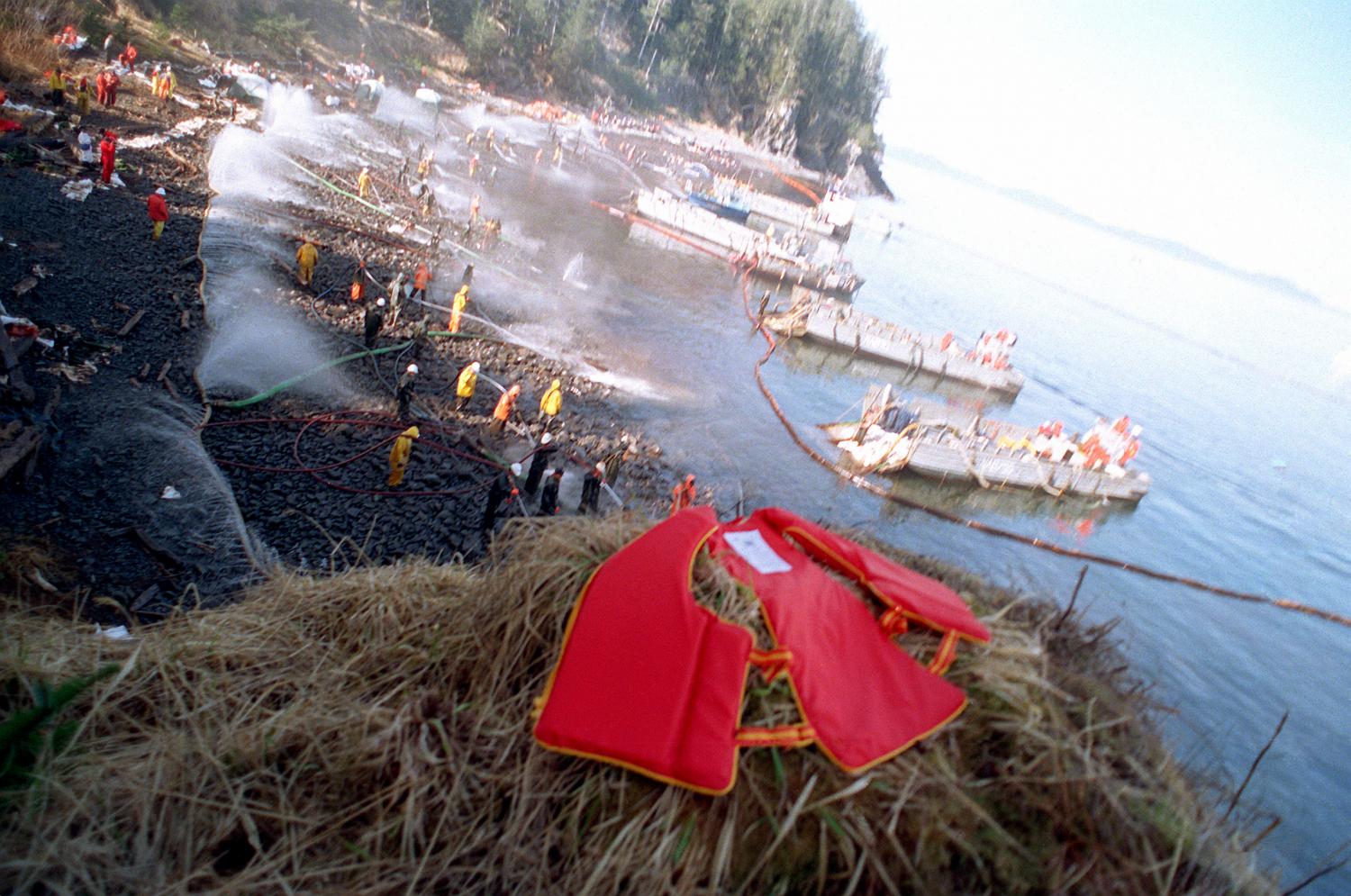
30 years ago this month, the U.S. suffered what was then its worst oil spill in history - but one bright spot was the emergence of the sustainability advocacy group Ceres.
It was 30 years ago this month that the Exxon Valdez oil tanker ran aground in Alaska’s Prince William Sound. The damage was horrific, starting with the spilling of an amount of crude oil that surged to the hundreds of thousands of barrels (approximately 11 million gallons). At the time, it was the largest oil spill in U.S. history, soiling approximately 1,300 miles of coastline in addition to killing and harming many species of wildlife. The cleanup (as pictured above, hours after the spill occurred) took years, and its effects still remain.
Reaction to the images of what was a once a pristine environment, only to become the site of dead wildlife and ruined coastline, was fast and fierce. Many consumers cut their Exxon gas credit cards in half or vowed never to buy that brand of gasoline again. Furthermore, Exxon suffered more than a hit to its brand reputation—lawsuits amounting to billions of dollars buried the company in litigation, though the final total the company paid in punitive damages over the next 20 years was much less, at about $507 million.
But there was another outcome of that environmental disaster that has left a far more lasting and beneficial impact. A small band of investors, who felt Corporate America could do better, pooled their talent and passion together. The outcome was the Coalition for Environmentally Responsible Economies, later known as Ceres.
Ceres’ list of accomplishments over the past few decades is a long one. Just a few months after the Exxon Valdez spill, this group of investors partnered with environmental groups to formulate what was then quite a groundbreaking code of conduct for companies called the Valdez Principles, later to be named the Ceres Principles.
Ceres later had a leading role in establishing the Global Reporting Initiative (GRI), which is now the globally accepted standard for ESG (environmental, social and governance) reporting. The Amsterdam-based group administers and updates a set of ESG reporting guidelines used by approximately 13,400 companies and organizations worldwide.
By the turn of the century, more companies considered environmental and social issues as factors that became central to corporate financial imperatives instead of externalities. The work Ceres has helped launch is now visible not only in frameworks that help companies report on ESG-related risks and opportunities, but also in tools that help these companies to take constructive action and even come up with new business ideas.
The people driving Ceres hardly rest on their laurels. Over the past decade, they have been pushing the global insurance industry to be cognizant of ESG risks, urged the U.S. Securities and Exchange Commission to take climate change disclosures into account, and given companies the resources to extend their sustainability efforts further than their operations and into their supply chains—and that is just the shortest of short-lists summing up Ceres’ accomplishments.
Mindy Lubber, CEO and president of Ceres, sums up the organization's continued advocacy work: “We must take stock of how far we have come, and how much we have achieved in tackling some of the greatest sustainability challenges,” she wrote in a recent blog post. “Investor action on sustainability is no longer a sideline endeavor.”
Image credit: National Archives

Leon Kaye has written for 3p since 2010 and become executive editor in 2018. His previous work includes writing for the Guardian as well as other online and print publications. In addition, he's worked in sales executive roles within technology and financial research companies, as well as for a public relations firm, for which he consulted with one of the globe’s leading sustainability initiatives. Currently living in Central California, he’s traveled to 70-plus countries and has lived and worked in South Korea, the United Arab Emirates and Uruguay.
Leon’s an alum of Fresno State, the University of Maryland, Baltimore County and the University of Southern California's Marshall Business School. He enjoys traveling abroad as well as exploring California’s Central Coast and the Sierra Nevadas.














